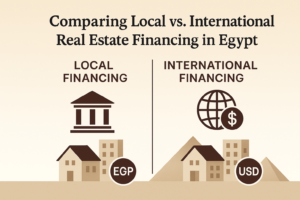Understanding Real Estate ROI for Smart Investments
Investing in real estate is one of the most effective ways to build wealth, but success depends on understanding Return on Investment (ROI). ROI measures the profitability of a property, giving investors insights into potential gains and helping them make informed decisions. Whether you’re purchasing a rental property, flipping houses, or investing in Real Estate Investment Trusts (REITs), knowing how to calculate ROI ensures you maximize your returns and minimize risks.
This guide explains what real estate ROI is, how to calculate it, and the factors influencing it. Whether you’re a beginner or an experienced investor, understanding ROI can significantly impact your financial success.
What is Real Estate Return on Investment (ROI)?
Defining ROI in Real Estate
Real estate ROI is a key financial metric that measures the profitability of an investment relative to its cost. It indicates how much an investor earns or loses on a property investment, expressed as a percentage. A high ROI means better profitability, while a low or negative ROI signals financial losses.
Why is ROI Important for Real Estate Investors?
Investors use ROI to:
Compare different investment properties.
Assess financial performance and profitability.
Make data-driven decisions on property acquisitions and sales.
Determine whether a real estate venture aligns with financial goals.
How to Calculate ROI in Real Estate
The Basic ROI Formula
The standard formula for calculating real estate ROI is:

ROI Calculation for Rental Properties
To calculate ROI for rental properties, use this method:
Determine Annual Rental Income: Calculate the total rent collected yearly.
Subtract Operating Expenses: Deduct maintenance, property management, taxes, and insurance costs.
Find Net Profit: Subtract total expenses from rental income.
Calculate ROI: Divide the net profit by the total investment cost and multiply by 100.
ROI Calculation for House Flipping
For house flipping, the formula is slightly different:
Determine Sale Price: Find the selling price of the property.
Subtract Purchase and Renovation Costs: Include acquisition, renovation, and holding expenses.
Calculate ROI: Divide net profit by the total investment cost and multiply by 100.
Factors Affecting Real Estate ROI
Property Location and Market Trends
Location plays a crucial role in ROI. Properties in high-demand areas with economic growth, job opportunities, and strong rental demand tend to yield higher returns.
Financing and Mortgage Interest Rates
Investors using financing should consider mortgage interest rates. High rates increase monthly payments, reducing overall ROI.
Property Management and Maintenance Costs
High maintenance expenses can eat into profits, lowering ROI. Efficient property management ensures better cash flow and increased long-term gains.
Rental Demand and Occupancy Rates
A property with high occupancy rates and strong rental demand delivers steady income, improving ROI.
Common Mistakes That Lower Real Estate ROI
Underestimating Expenses
Failing to account for hidden costs such as repairs, vacancies, and property taxes can result in inaccurate ROI calculations.
Ignoring Market Trends
Investing in areas with declining property values can lead to poor returns. Always research market conditions before buying.
Overleveraging with High Debt
Taking excessive loans with high-interest rates reduces cash flow and ROI. Use smart financing strategies to maintain profitability.
Frequently Asked Questions (FAQs)
What is a good ROI for real estate investments?
A good ROI varies by market and investment type. Generally, an ROI of 8% to 12% for rental properties and 15% to 25% for house flipping is considered favorable.
How can I improve my real estate ROI?
Buy properties below market value.
Increase rental income through renovations.
Reduce expenses by optimizing property management.
How does leverage impact ROI?
Using a mortgage can amplify ROI, but high-interest loans reduce net profits. Balancing leverage is key to maximizing returns.
Should I calculate ROI before buying a property?
Yes, estimating ROI before purchase helps investors make data-driven decisions and avoid bad investments.
How often should I reassess my real estate ROI?
Investors should evaluate ROI annually to track performance, identify opportunities for improvement, and adjust strategies accordingly.
Maximize Your Real Estate ROI with Consult
Understanding ROI is essential for making profitable real estate investments. Whether you’re a first-time investor or an experienced professional, optimizing ROI ensures maximum returns on your properties.
Consult is a leading real estate investment consultancy specializing in market analysis, property acquisition, portfolio management, and ROI optimization. Our experts help investors make informed decisions and increase profitability.
Ready to enhance your real estate returns? Contact Consult today for expert advice and customized investment strategies.

















